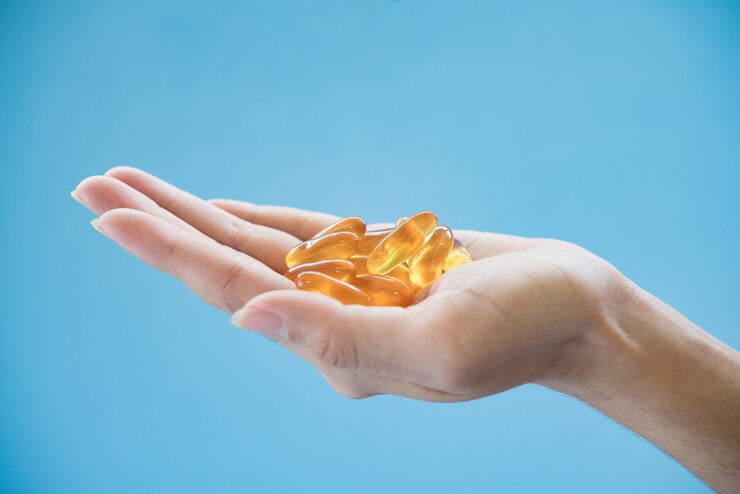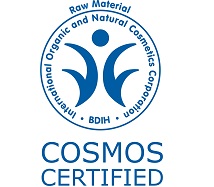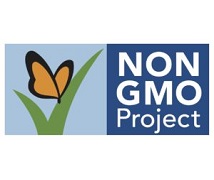

Organic Vitamin D3 Powder
The indiscriminately use of fertilizers and pesticides in agriculture can have severe impact on human health ranging from toxicity and deadly diseases. We at ARYAN, are committed to address this challenge by working towards the organic food which uses herbal plants based extracts and adopts phytoremediation for removal of hazardous substances and toxic metals. For last two decades, our group has been involved in the production of Organic botanical extracts, organic essential oils, organic edible oil, organic spices, organic starch, organic flours, organic seeds. Now we are focusing on organic minerals and organic vitamins. By now ARYAN has carved a niche for itself in the field of ORGANIC FOODS and is continuously moving in leaps and bounds. Taking a leaf out of this growth, we intend to start the production of our “Organic Vitamin-D”. Our vitamin is purely organic and does not use any chemical compounds. Unlike other organic Vitamin-D available in the market, ours is totally “Gluten Free”. We have already developed the organic vitamin D and shortly file the patent so that commercial production can star in near future.
- Vitamin D is a fat-soluble vitamin that plays an important role in bone metabolism and also has some anti-inflammatory and immune-modulating properties.
- Vitamin D is a hormone precursor that is present in 2 forms: a) Ergocalciferol, or vitamin D2, is present in plants and some fish and b) Cholecalciferol, or vitamin D3, is synthesized in the skin by sunlight. Human can fulfil the vitamin D requirements by intake of vitamin D or getting exposed to the sun for enough time.
- Vitamin D nutrients that cannot be created by the body and therefore must form a part of the diet.
- Vitamin D3 can be manufactured in the skin by ultraviolet (UV) B rays. UVB rays are present only during midday at higher latitudes and do not penetrate clouds. Vitamin D3 is synthesized from 7-dehydrocholesterol in the skin.
- The vitamin D binding protein transports the vitamin D3 to the liver where it undergoes hydroxylation to 25(OH)D (the inactive form of vitamin D) and then to the kidneys where it is hydroxylated by the enzyme 1 αhydroxylase to 1,25(OH)D, its active form.
The richest food sources of vitamin D are mushroom. The different varieties of mushrooms are: Camptochaete. arbuscula (lichen), Agaricus bisporus (common mushroom), chanterelle mushroom, maitake mushroom, Portobello mushroom, raw crimini, shiitake mushroom, and others such as microalgae sargassum, Soyabean, Orange, Spinach, potato leaf ,tomato leaf, waxy leaf nightshade, bell pepper etc.
The FNB(Food and Nutrition Board established an RDA for vitamin D in both International Units (IUs) and micrograms (mcg).
Recommended Dietary Allowances for Vitamin D
| Age | Male | Female | Pregnancy | lactation |
| 0-12 months* | 400IU(10mcg) | 400IU(10mcg) | ||
| 1-13 years | 600IU(15mcg) | 600IU(15mcg) | ||
| 14-18 years | 600IU(15mcg) | 600IU(15mcg) | 600IU(15mcg) | 600IU(15mcg) |
| 19-50 years | 600IU(15mcg) | 600IU(15mcg) | 600IU(15mcg) | 600IU(15mcg) |
| 51-70 years | 600IU(15mcg) | 600IU(15mcg) | ||
| >70 years | 800IU(20mcg) | 800IU(20mcg) |
*Adequate Intake
Health benefits of vitamin D
This section looks at the potential health benefits of vitamin D, from assisting good bone health to possible cancer prevention.
a) Healthy bones
Vitamin D plays a substantial role in the regulation of calcium and maintenance of phosphorus levels in the blood. In children can cause rickets.
Vitamin D deficiency manifests as osteomalacia (softening of the bones) or osteoporosis in adults.Osteomalacia results in poor bone density and muscular weakness.
b) Reduced risk of flu
Children given 1,200 International Units of vitamin D per day for 4 months during the winter reduced their risk of influenza A infection by over 40 percent.
c) Reduced risk of diabetes
In Type 2 diabetes patients, insufficient vitamin D levels may adversely affect insulin secretion and glucose tolerance.
Studies have revealed that infants who receive 2,000 International Units per day of vitamin D have a 88 percent lower risk of developing type 1 diabetes by the age of 32.
d) Healthy infants
Studies have revealed that children with normal blood pressure and intake of 2,000 International Units (IU) per day had significantly lower arterial.
Low vitamin D status has also been associated with a higher risk and severity of atopic childhood diseases and allergic diseases, including asthma, atopic dermatitis, and eczema.
e) Healthy pregnancy
Pregnant women who are deficient in vitamin D seem to be at greater risk of developing preeclampsia and need a caesarean.
Poor vitamin D status is associated with gestational diabetes mellitus and bacterial vaginosis in pregnant women.
f) Cancer prevention
It is extremely important for regulating cell growth and for cell-to-cell communication. Calcitriol (the hormonally active form of vitamin D) can reduce cancer progression by slowing the growth and development of new blood vessels in cancerous tissue, increasing the death rate of cancer cells and and reducing cell proliferation and metastasis.
g) Miscellaneous
If Vitamin D deficiency continues for long periods of time it can result in Obesity, Diabetes, Hypertension, Depression, Fibromyalgia, Osteoporosis, Alzheimer’s disease Chronic fatigue syndrome.
Symptoms of vitamin D deficiency
Getting sick or infected more often, Fatigue, Painful bones and back, Depressed mood, Impaired wound healing, Hair loss, Muscle pain.
Precautions
Dosages of over 125 mcg taken daily may adversely affect some individuals. Signs of toxicity are unusual thirst, sore eyes, itching on the skin, vomiting, Diarrhoea and an urgent and frequent problem of urination. Abnormal calcium deposits may also be found in the Blood vessel walls, liver, lungs, kidneys, and stomach.
Caution
As with any dietary supplement, one should consult the medical practitioner before using this product. Special care should be taken by pregnant females and those who have undergone surgery.
Search Products
- Organic Botanical Extract
- Organic Cereals
- Organic Edible Oils
- Organic Emulsifiers
- Organic Essentials Oils & Extracts
- Organic Fatty Acids
- Organic Flours
- Organic Formulations
- Organic Herbs
- Organic Minerals
- Organic Nutraceuticals
- Organic Nuts
- Organic Oil Seeds
- Organic Pulses
- Organic Special Products
- Organic Spices
- Organic Starch
- Organic Vitamins










